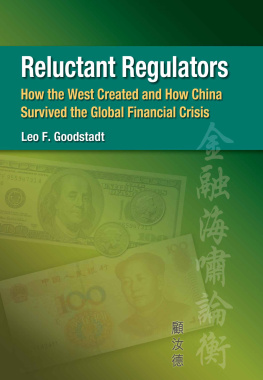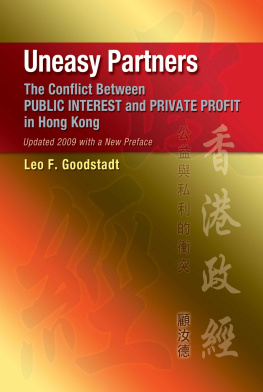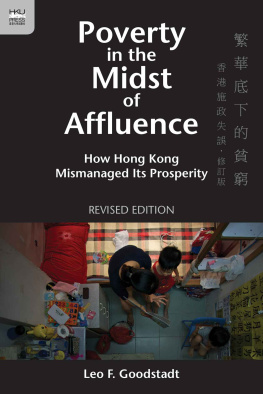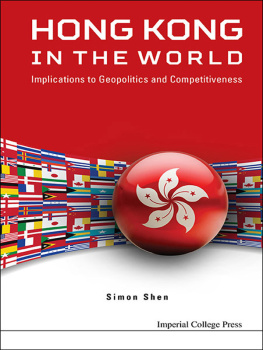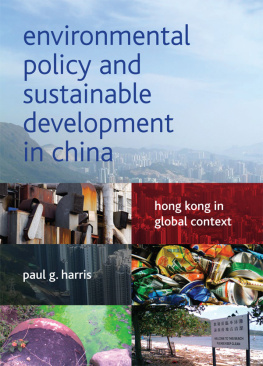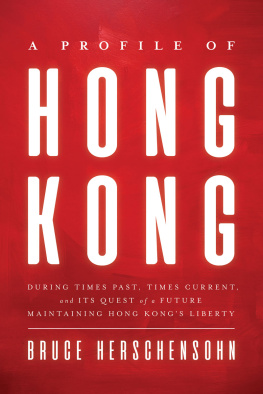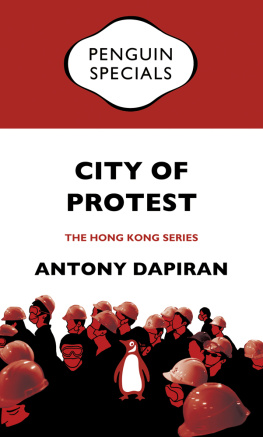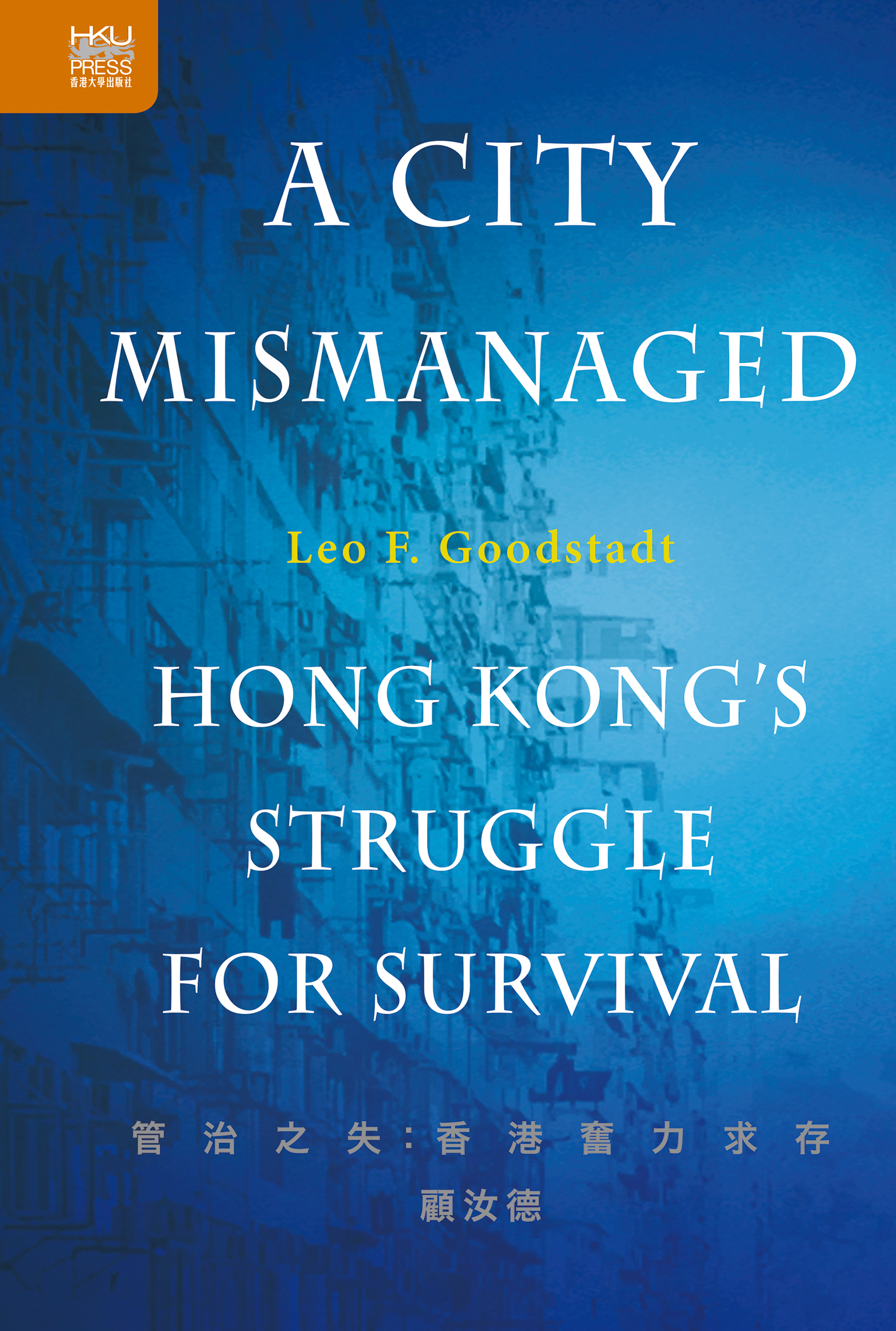Goodstadt demonstrates how the neglect of social rights in managing the SAR has brought about serious consequences through the discussion of housing, medical services, and education. A highly readable title with a lot of interesting arguments for those who really care about Hong Kong.
Goodstadt gives a well-grounded and relentless rebuke of the HKSAR government for failing to safeguard lives, quality of living and the interests of its people in the past twenty years. It is a poignant siren that calls for reflection and correction.
Goodstadt utilizes his long experience in public policy in Hong Kong to interpret the citys mismanagement. He supplies a devastating critique of the fallacy of the approach taken by the Chief Executives and the senior leaders.
A City Mismanaged
Hong Kongs Struggle for Survival
Leo F. Goodstadt

Also by Leo F. Goodstadt
Chinas Search for Plenty: The Economics of Mao Tse-tung
Poverty in the Midst of Affluence: How Hong Kong Mismanaged Its Prosperity
Profits, Politics and Panics: Hong Kongs Banks and the Making of a Miracle Economy, 19351985
Reluctant Regulators: How the West Created and How China Survived the Global Financial Crisis
Uneasy Partners: The Conflict Between Public Interest and Private Profit in Hong Kong
Hong Kong University Press
The University of Hong Kong
Pokfulam Road
Hong Kong
https://hkupress.hku.hk
2018 Leo F. Goodstadt
ISBN 978-988-8455-98-0 (Hardback)
ISBN 978-988-8528-49-3 (Paperback)
All rights reserved. No portion of this publication may be reproduced or transmitted in any form or by any means, electronic or mechanical, including photocopying, recording, or any information storage or retrieval system, without prior permission in writing from the publisher.
British Library Cataloguing-in-Publication Data
A catalogue record for this book is available from the British Library.
Preface
In 2013, I wrote a book entitled Poverty in the Midst of Affluence: How Hong Kong Mismanaged its Prosperity, which made grim reading. Little did I realise that another crisis was overtaking Hong Kong which would get completely out of control. A potential catastrophe was threatening the million households in the private property sector where buildings were deteriorating at an increasing rate. Dilapidation of Hong Kong housing began with a lack of maintenance and professional management. Multi-storey housing estates with hundreds and often thousands of flats need regulation just as much as banks, share markets, and medical servicesto quote only a few of the services essential to the communitys well-being which are policed to protect the public. But the government steadfastly opposed accepting a similar responsibility for private housing, no matter how shocking the latest evidence of the dangers to health as well as safety highlighted by the media. There was also a financial loss involved. Many families in the private sector had struggled with mortgages to become owner-occupiers over the years. Increasing numbers of them had to face the prospect of losing most of their investment because the premises become less and less fit for human habitation with each decade and thus unattractive to potential buyers.
This state of affairs seems incredible when compared with the quality of the rest of Hong Kongs performance. Despite mounting tensions over political reform and the rise of radical protest movements, Hong Kong ranked as one of the safest and most successful societies in the world. Its economy had faced severe challenges from 1997 onwards. Twenty years later, the economy had expanded by 80 per cent in terms of real GDP. Labour productivity was growing faster for much of this period than in Singapore, the United States and other advanced economies. Nevertheless, in this century, Hong Kong could not guarantee its families that they would have access to a most basic amenity: safe and affordable homes.
Why did the looming threats to private housing not arouse the communitys indignation? Despite Hong Kongs extraordinary record of success in the face of political, financial and social challenges of every kind, survival is never taken for granted. For the average family, what had come to matter most was political risk and Hong Kongs ability to survive 1997. By 2012, anxieties had intensified about Hong Kongs way of life and what changes 2047 might bring. Thus, the preservation of Hong Kong values became an overwhelming concern. Shortfalls and scandals affecting housing and social services were given a much lower priority
For me, watching this phenomenon was personally very painful. I had arrived at the University of Hong Kong as a Commonwealth Scholar in 1962 to research housing problems, and I continued this project as a lecturer there. The overall housing scene seemed dreadful, with large squatter colonies which the colonial administration was making as uncomfortable as possible to deter refugees. The existing stock of private housing was made up mostly of decrepit slum tenements. But in that era, there was a promise of progress. Colonial officials had been compelled by public demand to embark on public housing schemes and to better regulate the growing number of new, multi-storey blocks of homes.
These programmes gathered momentum in the decades that followed so that Hong Kongs housing crisis seemed to have been finally overcome by 2000. In reality, the private sector was about to be hit by a dreadful blight made inevitable principally by the refusal of Chief Executives and their political appointees to intervene in the private housing sector. The damage done by the owners defective management and maintenance was aggravated by a growing shortage in the relevant government departments of the personnel, facilities and funding needed to implement existing legislation and to develop the new legal and technical solutions required. By 2016, government statements on these issues bordered on open despair of being able to find workable solutions.


